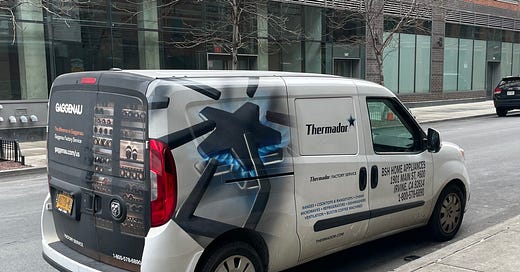Gas Stoves Should Be a Matter of Individual Choice
Appliances are important, and politicians and the public need to be brought in on sweeping regulation.
Dear readers,
Douglas has written in with a timely question:
I noticed on Twitter that you have been following the kerfuffle over the federal government potentially banning or more tightly regulating gas stoves. While the politics/optics are what they are, I was curious on your thoughts, as a consumer, on using gas vs. resistive electric vs. induction?
I ask because having recently moved into a home with a gas stove and oven for the first time in my life, and I hate it with a passion. I cook and bake a lot, and compared to my last apartment’s resistive electric stove, everything from boiling water to getting oil for frying up to temp to just searing something takes appreciably longer. And the gas oven is somehow even worse, with noticeable temperature swings as it cycles through heating and turning off.
Is this one of those cases where back in the Cold War, before I was alive, electric sucked, and no one has updated their priors? Because a modern 50-amp, 240-volt oven was far better than this.
“There is this misconception that if you want to do fine-dining kind of cooking it has to be done on gas,” Richard Trumka, Jr. said recently. “It’s a carefully manicured myth.”
Trumka isn’t a chef — he’s a Democratic appointee to the Consumer Product Safety Commission, and he kicked off the “kerfuffle” Douglas wrote to me about by telling Bloomberg News he thinks the CPSC should consider prohibiting the sale of new residential gas stoves, on the grounds that they have dangerous effects on indoor air quality.
This doesn’t mean the federal government is about to ban gas stoves or even that the CPSC is about to try. Alex Hoehn-Saric, the chair of the CPSC and also a Democratic appointee, has said (somewhat irritatedly) that he is not looking to ban gas stoves and that the CPSC has no proceeding to do so. Democrats in Congress who have issues with gas stoves have generally been pushing for new rules rather than bans: safety disclosures, and requirements about emission levels or ventilation that are designed to improve indoor air quality; such rules might add cost and therefore discourage gas stove installations at the margin, but they wouldn’t ban the products outright.
But a number of local jurisdictions, including New York City, have imposed rules in recent years that prohibit gas hookups in new construction buildings. These policies are motivated by concerns about indoor air quality and carbon emissions, and they mean that whether you’ll be allowed to buy and install a gas range is a live political question, at least in certain places.
The CPSC’s mandate is to protect the public from products that impose “unreasonable” risk of injury. One of the important questions to consider when determining whether the risks associated with gas ranges are “unreasonable” is what those risks actually are, and I think
is right to say that the new data Trumka and others are hanging their hats on to quantify those risks is not very compelling. But another important question is whether there are many consumers who have a strong preference for gas cooking, and whether their cooking preferences can be addressed well by an alternative product — this helps us figure out whether those risks are unreasonable, especially in light of the possibility that the risks could be at least partially mitigated with measures like improved ventilation.So it matters whether Trumka is right about his culinary claim: Is it not really better to cook with gas?
Keep reading with a 7-day free trial
Subscribe to Very Serious to keep reading this post and get 7 days of free access to the full post archives.



